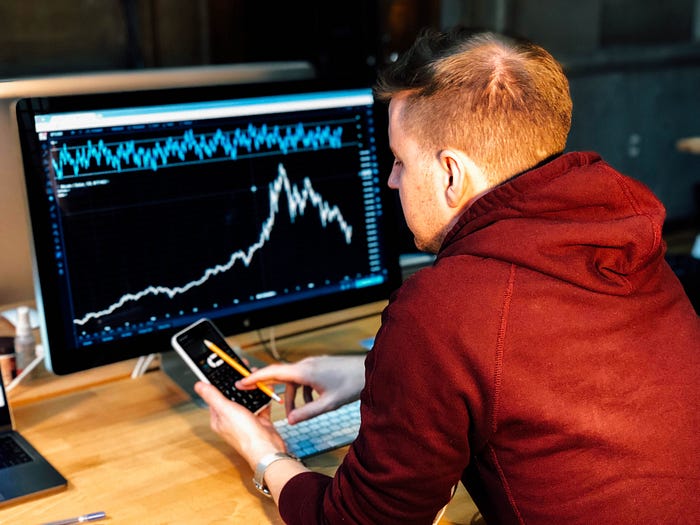Could AI Fully Replace Human Financial Traders?

The financial industry has seen a considerable increase in use cases for AI in recent years. In particular, the world of trading has become dominated by AI, forcing companies to reconsider what the future of stock trading will look like and whether there is room for human-financial-traders at all.
Will AI replace humans in the world of trading? Let’s take a closer look.
How is AI Used in Trading?
One of the primary benefits of AI is that it can make accurate predictions based on massive amounts of data in a short amount of time. What might take a human brain an entire day to figure out can be done in a matter of seconds by an AI.
That’s why AI has become so prevalent in trading. Predictive AI can help people make wise investment decisions, lowering their risk of making a bad decision. By only focusing on data, not human emotion, AI can also be more trustworthy than a human-financial-advisor.
Human-financial-traders are already using complex software to make their predictions. They combine software analysis with their own experiences and knowledge of the market. Using AI, experienced traders can recognize patterns in the market faster and use that data to make predictions based on their interpretations of certain sociocultural factors that may influence the market.
Forex (FX) trading is the type of trading that has seen the most influence from AI technology. Forex, or foreign exchange, trading refers to the process of trading one currency for another. This type of trading has become more prevalent in recent years, as digital technologies have made it easier to trade foreign currency. By integrating AI with FX trading, investors can be completely hands-off when investing their money. This type of trading does better when human emotion is removed, making it a prime candidate for integrating with AI.
Can Individual Traders Benefit from AI?
So far, larger investment firms and companies have benefitted the most from incorporating AI into the world of trading. These organizations can afford to pay the big bucks for complex software. They can also afford to hire a technical team available to operate and interpret the software.
More recently, though, AI software has become available to help everyone interested in trading, including individual investors. These advancements are great news for independent investors but bad news for brokers who may start losing their customers to an algorithm that can give them better advice based on data-driven predictions.
However, that doesn’t mean there is no place for human experts in trading. One of the main challenges critics cite about using AI in trading is that it is limited to only analyzing the data in front of it. It does not consider sociocultural factors that might be influencing the market now or soon. These elements are why many people think that there will never be a time when human-financial-traders are entirely irrelevant.
Will Human Traders Become Obsolete?
As with everything AI touches, it’s reductive to say that advanced technology will completely take over human traders’ jobs. However, the roles of human-financial-traders will likely become more specialized as machine learning models get more advanced at making accurate predictions based on data.
In the future, human traders may shift their focus to following sociocultural trends that, combined with data from a machine learning model, can help them make the best decisions for their organizations.